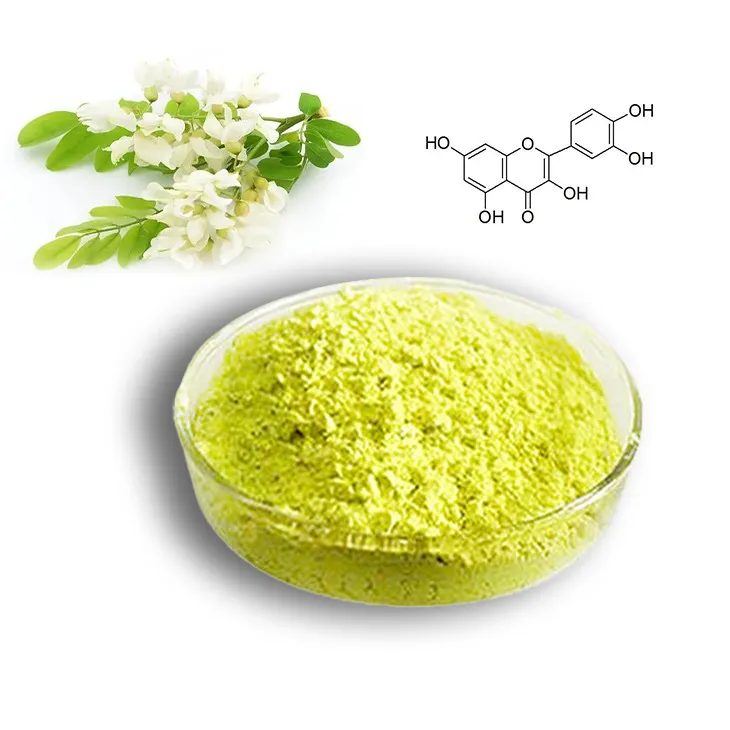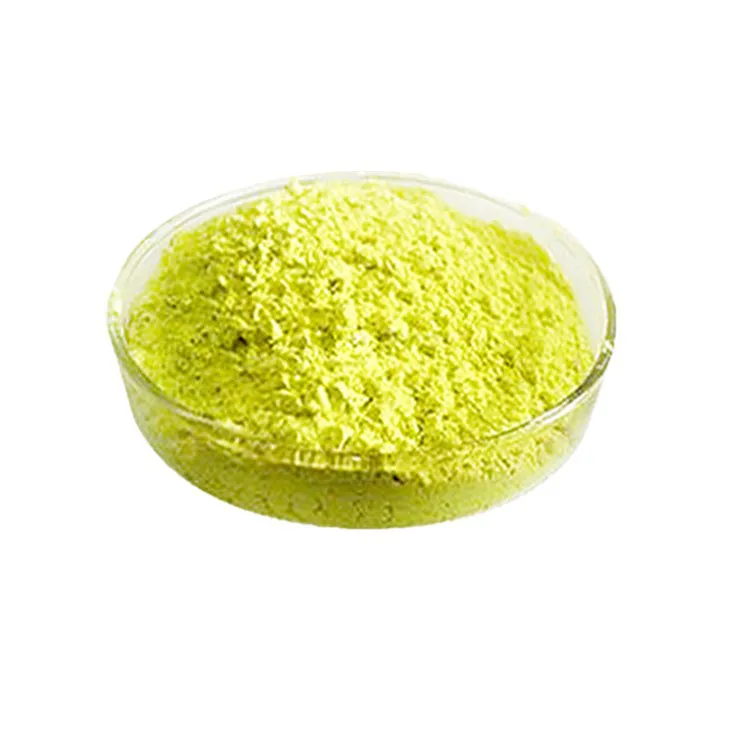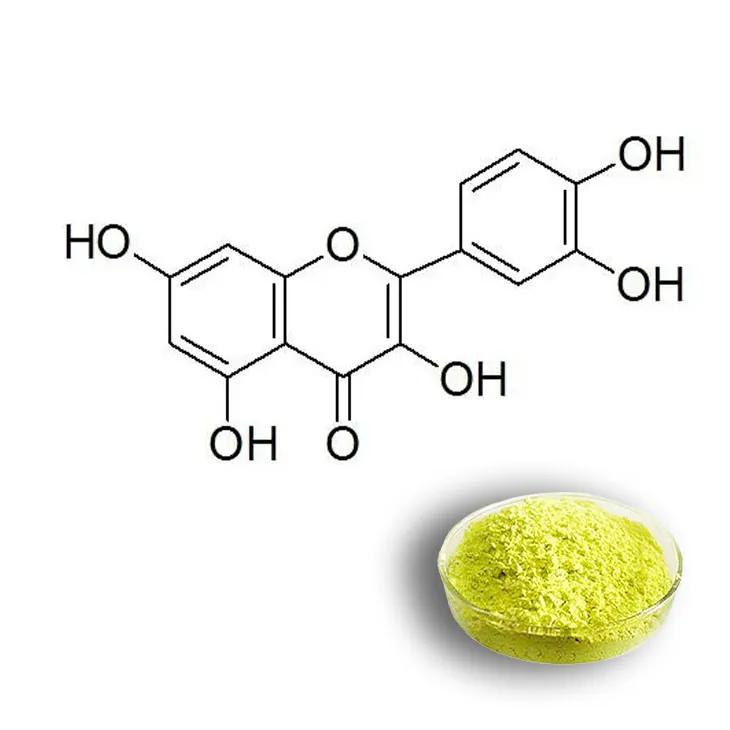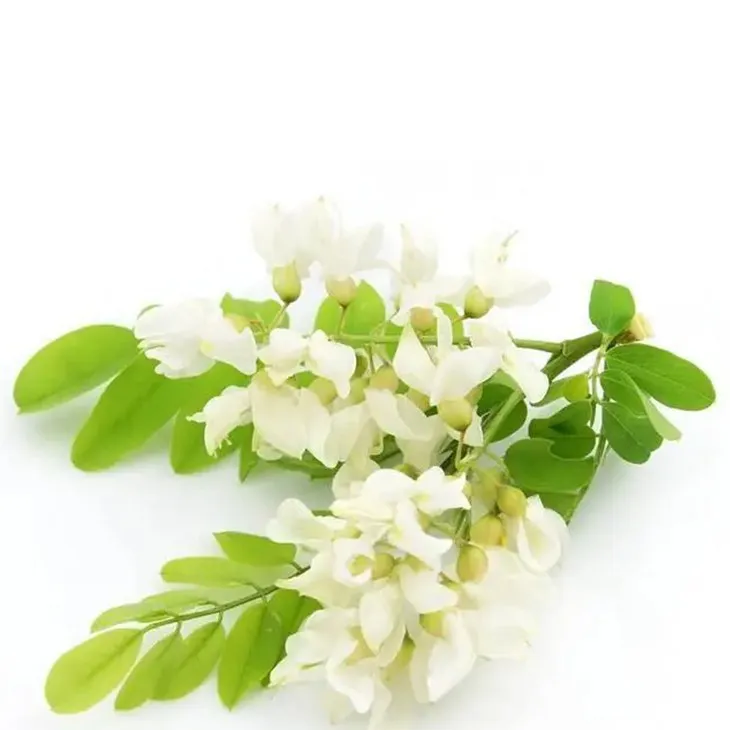- 0086-571-85302990
- sales@greenskybio.com
Quercetin: Innovation, Abundance and Beauty
2024-12-20

1. Introduction
Quercetin is a remarkable substance that has been attracting increasing attention in various fields. It is a flavonoid, a type of natural compound found abundantly in nature. Its significance lies not only in its ubiquity but also in its diverse properties that have the potential to innovate, enrich, and contribute to beauty.

2. Innovation in Quercetin Research
2.1 Novel Functions
Scientists are constantly exploring the novel functions of Quercetin. One of the most exciting areas of research is its potential role in health promotion. For example, recent studies have suggested that quercetin may have anti - inflammatory properties. Inflammation is a key factor in many chronic diseases, such as heart disease, arthritis, and certain cancers. By reducing inflammation, quercetin could potentially offer a new approach to preventing or treating these diseases.- Another area of innovation is its impact on the immune system. Quercetin has been shown to modulate the immune response, which could be beneficial in both boosting immunity against infections and in preventing autoimmune disorders.
- There is also emerging evidence that quercetin may play a role in protecting against neurodegenerative diseases. It may help to reduce oxidative stress in the brain, which is thought to be a contributing factor in diseases like Alzheimer's and Parkinson's.
2.2 Technological Advancements in Studying Quercetin
With the development of advanced research techniques, our understanding of quercetin is deepening.- Modern spectroscopic methods, such as nuclear magnetic resonance (NMR) spectroscopy, allow for more detailed analysis of the structure of quercetin and its interactions with other molecules.
- High - throughput screening technologies are enabling researchers to quickly test the effects of quercetin on a large number of biological targets, speeding up the discovery of new functions.
- Genomic and proteomic approaches are also being used to study how quercetin affects gene expression and protein synthesis, providing a more comprehensive view of its mechanisms of action.

3. Enriching Our Understanding
3.1 Insights into Natural Compounds
Quercetin enriches our understanding of natural compounds in several ways.- It serves as a model compound for studying the properties of flavonoids. Flavonoids are a large class of natural products with diverse biological activities. By understanding quercetin in detail, we can gain insights into the general characteristics and functions of this class of compounds.
- Quercetin's presence in a wide variety of plants and foods also highlights the importance of natural products in our diet. It encourages further research into the potential health benefits of consuming a diet rich in flavonoid - containing foods.
3.2 Unraveling the Complexities of Biological Systems
The study of quercetin helps us to unravel the complexities of biological systems.- It has been shown to interact with multiple cellular pathways. For example, it can affect the activity of enzymes involved in cell signaling, metabolism, and antioxidant defense. Understanding these interactions gives us a better understanding of how cells function and how they respond to external stimuli.
- Quercetin's role in modulating gene expression also provides valuable information about the regulation of biological processes at the molecular level. This knowledge can be applied to other areas of research, such as drug development and understanding disease mechanisms.

4. Quercetin and Beauty
4.1 Skin Health
Quercetin can play a significant role in improving skin texture and appearance.- It has antioxidant properties that can protect the skin from damage caused by free radicals. Free radicals are highly reactive molecules that can damage skin cells, leading to premature aging, wrinkles, and dull skin. By neutralizing these free radicals, quercetin helps to maintain the integrity of the skin and keep it looking youthful.
- Quercetin also has anti - inflammatory effects on the skin. Inflammation can cause redness, swelling, and acne. By reducing inflammation, quercetin can help to soothe irritated skin and improve overall skin tone.
4.2 Hair Health
In addition to skin health, quercetin may also be beneficial for hair health.- It can promote blood circulation in the scalp. Good blood circulation is essential for delivering nutrients to the hair follicles, which can stimulate hair growth and prevent hair loss.
- Quercetin's antioxidant and anti - inflammatory properties can also protect the hair follicles from damage, keeping the hair healthy and shiny.

5. Quercetin in Nature
5.1 Abundance in the Plant Kingdom
Quercetin is found in significant amounts in the plant kingdom.- It is present in many fruits and vegetables, such as apples, onions, and berries. These foods are not only delicious but also rich sources of quercetin. Consuming a diet rich in these foods can provide a natural source of quercetin for our bodies.
- Quercetin is also found in certain herbs and medicinal plants. For example, it is a component of Ginkgo biloba, which has been used in traditional medicine for its potential health benefits.
5.2 The Beauty of Nature's Bounty
The presence of quercetin in nature is a symbol of the beauty that nature holds.- It showcases the intricate design of plants, which produce quercetin as part of their defense mechanisms against environmental stresses such as UV radiation and pathogen attack. This natural production of quercetin is a testament to the adaptability and resilience of plants.
- Moreover, the fact that we can benefit from the quercetin present in nature, whether through diet or natural products, is a reminder of the harmonious relationship between humans and nature. We can harness the power of nature's bounty to improve our health and well - being.
6. Conclusion
Quercetin is truly a remarkable substance that embodies the concepts of innovation, enrichment, and beauty. Its continuous exploration in research for new functions represents innovation. It enriches our knowledge of natural compounds and biological systems. And its presence in nature and its beneficial effects on beauty, especially skin and hair health, are aspects of its beauty - related qualities. As research continues, we can expect to uncover even more about this fascinating compound and further explore its potential in various aspects of our lives.
FAQ:
What are the novel functions of quercetin currently being studied?
There are various novel functions being explored. For example, researchers are looking into its potential role in combating certain chronic diseases at a molecular level, as well as its possible applications in areas like neurodegenerative disorder prevention. Also, its anti - inflammatory properties are being investigated in more complex biological systems to find new therapeutic targets.
How does quercetin enrich our understanding of natural compounds?
Quercetin is a flavonoid, and its study provides insights into the chemical structure, biological activities, and interactions of flavonoids in general. By understanding quercetin's properties such as its antioxidant activity, its role in cell signaling, and its interactions with other molecules in the body, we can better understand how other natural compounds with similar structures might function. This knowledge also helps in categorizing and predicting the potential of new natural compounds that are discovered.
Can quercetin really improve skin texture?
Yes, it can. Quercetin has antioxidant properties that can help protect the skin from damage caused by free radicals. These free radicals can lead to premature aging of the skin, including wrinkles and a loss of elasticity. By neutralizing these free radicals, quercetin can contribute to maintaining a healthier skin texture and appearance. Additionally, it may also have anti - inflammatory effects on the skin, which can further improve skin conditions.
Where can quercetin be found abundantly in nature?
Quercetin is found in many fruits, vegetables, and grains. For example, it is present in high amounts in apples, especially in the skin. Berries such as cranberries and blueberries also contain significant levels of quercetin. In vegetables, onions are a good source, and in grains, buckwheat contains a notable amount of this compound.
How does quercetin represent the beauty of nature?
Quercetin is a natural compound that is widespread in nature. It is part of the complex web of substances that make up plants and contribute to their growth, survival, and interactions. The fact that it has beneficial properties for human health, as well as its presence in the beautiful and diverse plant world, makes it a symbol of the beauty that nature holds. It shows how nature provides us with substances that can enhance our well - being while also being an integral part of the natural world's aesthetic and ecological balance.
Related literature
- Quercetin: A Flavonoid with Multiple Health Benefits"
- "The Role of Quercetin in Natural Product Research"
- "Quercetin and Skin Health: Current Insights"
- ▶ Hesperidin
- ▶ citrus bioflavonoids
- ▶ plant extract
- ▶ lycopene
- ▶ Diosmin
- ▶ Grape seed extract
- ▶ Sea buckthorn Juice Powder
- ▶ Beetroot powder
- ▶ Hops Extract
- ▶ Artichoke Extract
- ▶ Reishi mushroom extract
- ▶ Astaxanthin
- ▶ Green Tea Extract
- ▶ Curcumin Extract
- ▶ Horse Chestnut Extract
- ▶ Other Problems
- ▶ Boswellia Serrata Extract
- ▶ Resveratrol Extract
- ▶ Marigold Extract
- ▶ Grape Leaf Extract
- ▶ blog3
- ▶ blog4
- ▶ blog5
-
Pure 85% Tomentil Extract.
2024-12-20
-
Milk Thistle Extract
2024-12-20
-
Tongkat Ali Extract
2024-12-20
-
Echinacea Extract
2024-12-20
-
Oat Straw Extract Powder
2024-12-20
-
Camu Camu Extract
2024-12-20
-
Kidney Bean Extract
2024-12-20
-
Lycopene
2024-12-20
-
Sea buckthorn Juice Powder
2024-12-20
-
Astaxanthin
2024-12-20
-
Centella Asiatica Extract
2024-12-20





















